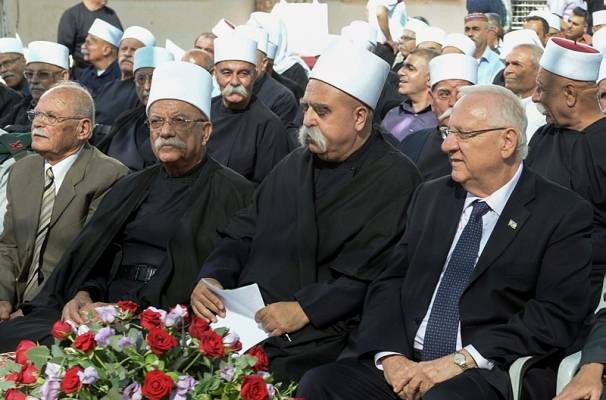Jews, Christians, and smaller religions are facing extinction in the Middle East outside of Israel, which remains a beacon of religious freedom.
By Yakir Benzion, United With Israel
Pope Francis recently made his first-ever papal trip to Iraq, a country that has lost more than 90% of its Christian population in the past two decades, putting a spotlight on the fact that religious minorities are facing extinction in the Middle East.
A report this week by the Foundation for the Defense of Democracies highlighted that while the Middle East is the cradle of the three Abrahamic faiths, which have more than 4 billion adherents around the globe, Christianity and other minority faiths of the region are facing dark times.
“Oppressive governments and violent extremist movements have been busy erasing the Middle East’s diverse religious communities,” wrote Sharon Nazarian of the Anti-Defamation League (ADL) and the FDD’s Aykan Erdemir.
They warned that Syria and Yemen have lost almost all of their Jews, while Turkey has done the same with its Chaldean Christians, which are ethnic Syriacs who follow Catholic rites.
In Iraq, the Yazidis, a Kurdish-speaking community that adheres to a long-persecuted ancient monotheistic faith narrowly escaped destruction during the Islamic State’s genocidal campaign.
Iraq’s Mandaeans, followers of another indigenous Middle Eastern faith, also fear extinction.
The numbers are scary, showing a mass exodus of ancient communities. Iraq’s Christian population plummeted from 1.5 million before 2003 to what appears to be less than 120,000 today. Turkey’s Greek Orthodox, Jewish and Syriac Christian citizens are more likely to live in diasporas rather than in their original homes.
Although Coptic Christians still number around 10 million in Egypt, according to the Hudson Institute the Coptic church has been the victim of repeated fatal attacks in Egypt. Coptic Christians are thus seeking refuge “outside Egypt’s borders.”
The Bahai faith remains horrifically targeted in Iran, where its adherents face a continued dehumanizing assault from the authorities. The Islamic republic’s systematic persecution of the Bahai community also extends beyond its own borders. In Yemen, Tehran’s Houthi proxies have subjected the last few Bahais there to arbitrary imprisonment and torture.
The Bahai faith’s headquarters is located in Israel, the home of its Universal House of Justice, the Bahai’s supreme governing body in Haifa. Israel is the only country in the Middle East where Christians, Bahais and other minority religions have no fear of Islamic terrorists trying to slaughter them or totalitarian regimes suppressing their rights.
Iran has also chased out most of its once large and thriving Jewish community, reducing its numbers from 100,000 to below 9,000 today. Iran’s leaders have for decades said their goal is the “total annihilation” of Israel.
The FDD report showed that religious minorities in the Middle East face a particularly potent threat from the insidious collaboration between authoritarian states and violent extremist groups, as the growing footprint of non-state actors has exacerbated the danger to religious minorities.
“The U.S. government should take a stand to defend diversity and pluralism in the Middle East and beyond, in concert with its transatlantic allies and other partners,” said Nazarian and Erdemir in their report. “Security assurances to protect embattled communities from future genocidal campaigns, substantial development aid for rebuilding them and support for inclusive institutions can all play a role.”
They said U.S. leadership and cooperation with America’s allies “are imperative to reversing these alarming trends. As the Biden administration emphasizes making human rights central to U.S. foreign policy, the Middle East’s endangered religious minorities should be one of its priorities.”
